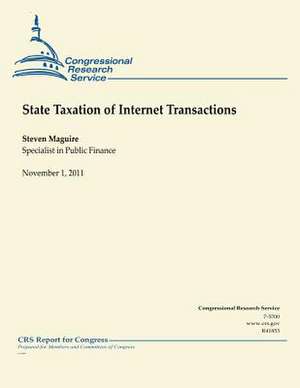State Taxation of Internet Transactions
Autor Steven Maguireen Limba Engleză Paperback
Preț: 45.18 lei
Nou
Puncte Express: 68
Preț estimativ în valută:
8.64€ • 9.05$ • 7.15£
8.64€ • 9.05$ • 7.15£
Carte disponibilă
Livrare economică 15-29 martie
Preluare comenzi: 021 569.72.76
Specificații
ISBN-13: 9781470047832
ISBN-10: 1470047837
Pagini: 24
Dimensiuni: 216 x 279 x 1 mm
Greutate: 0.08 kg
Editura: CREATESPACE
ISBN-10: 1470047837
Pagini: 24
Dimensiuni: 216 x 279 x 1 mm
Greutate: 0.08 kg
Editura: CREATESPACE
